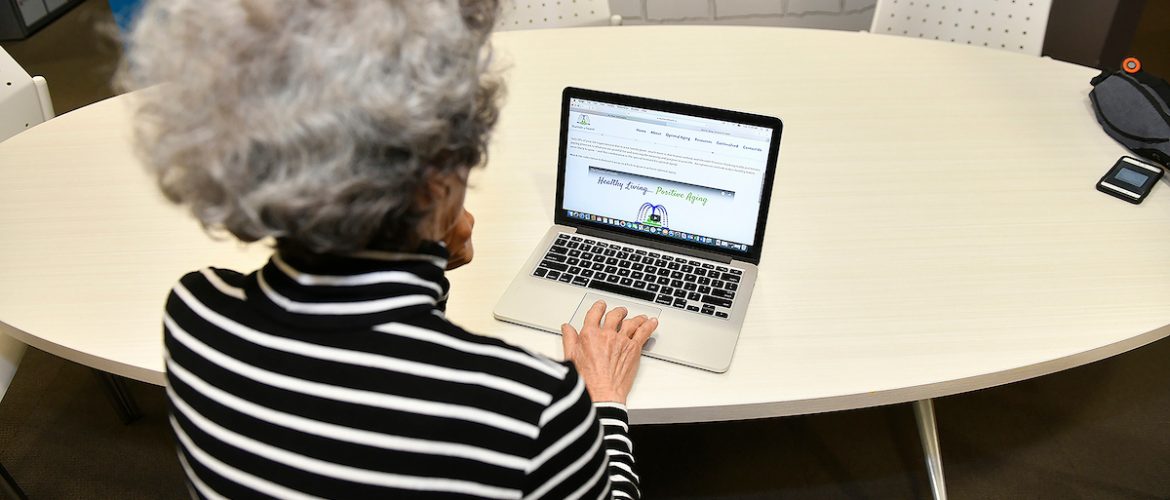In honour of Alzheimer’s Awareness Month, CABHI is writing a blog each week with themes ranging from caregiver support to keeping the brain active. This week’s post focuses on healthy living.
The Fountain of Health (FOH) is a mental health initiative with one overarching goal: helping Canadians optimize brain health over the lifespan. While the program started in Nova Scotia, it now has a national presence. The aim is to promote brain health by modifying key lifestyle and attitude factors.
FOH identifies five key strategies to protect age-related brain health:
1) Keeping physically active
2) Staying socially active
3) Engaging in lifelong learning
4) Taking care of our mental health
5) Changing how we think about aging
Dr. Keri-Leigh Cassidy, the founder of FOH and a professor of geriatric psychiatry at Dalhousie University, is quick to point out that these five strategies are all backed by evidence-based research. She adds that improving lifestyle and outlook in these domains can prevent or delay dementia and other mental illness, while improving health outcomes.

Dr. Keri-Leigh Cassidy
Dr. Cassidy is a geriatric psychiatrist and a national expert in cognitive behavioural therapy (CBT) and Positive Psychiatry. While developing a CBT treatment for people living with depression and anxiety in late life, she noted the negative beliefs that patients with depression have about aging, as well as new research indicating negative self perceptions of aging to be a modifiable health risk factor. “That led me to be interested in the emerging science of brain neuroplasticity, epigenetics and key modifiable health risk factors that impact most on health outcomes, brain health and resilience,” she explains.
The psychiatrist and her team received an initial grant from the Mental Health Foundation of Nova Scotia six years ago to develop FOH. They brought together 13 provincial senior-sector organizations. The initial goal was to increase public awareness about the new science related to optimal aging. From there, through funding primarily from the government of Nova Scotia, the team developed the five key evidence-based mental health messages, the foundation of FOH, established a website to help disseminate information about FOH and expanded the project and team nationally.
CABHI’s role
Last year Dr. Cassidy and her team applied for the Spark program at CABHI, which is designed to nurture early-stage ideas from point-of-care clinicians. CABHI provides up to $50,000 in financial support, in addition to guidance and feedback opportunities.
“We were at a point of wanting to move FOH health behaviour change tools to clinicians’ offices in the Nova Scotia Health Authority, and beyond. CABHI’s support has really helped to move this forward.”
Thanks to the collaboration with CABHI, Dr. Cassidy and her team were able to produce a high-quality educational video, along with paper-based and electronic tools including a prototype app for clinicians to use with patients. It’s helped spread the word to healthcare providers like Gloria Connolly, a clinical nurse educator in Halifax who’s worked in healthcare for 29 years.
“As a nurse who’s mainly worked in geriatrics, this is a really nice focus,” shares Connolly. “You’re not focusing on the chronic illness. You’re focusing on what all of us can do to age better and what we can do to improve our resilience.”
Connolly has trained many of her staff members on how to use FOH. She says the tool can positively impact healthcare providers as well. “I wanted the staff to do something for themselves,” she adds. “We’re always thinking about caring for patients. Sometimes you have to focus on caring for yourself. As nurses, we take a lot on, so if there’s some way we can focus on reducing our stress or looking out for ourselves mentally and physically, all of these things are very important.”
According to Dr. Cassidy, how we perceive ourselves at any age is vital to our health. “How we think about ourselves has an impact on our health and health outcomes. It’s an area that I find fascinating and worth sharing widely. The goal of the the FOH initiative is to translate complex science into straightforward actions, which can be broken down into small doable steps. We hope many more clinicians will embrace this positive science, whether applying this to themselves or in using it in routine care with adults of any age, as part of an evidence-based practice to promote mental and physical health.”


